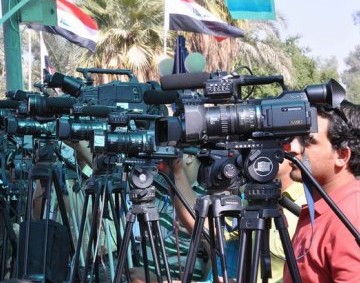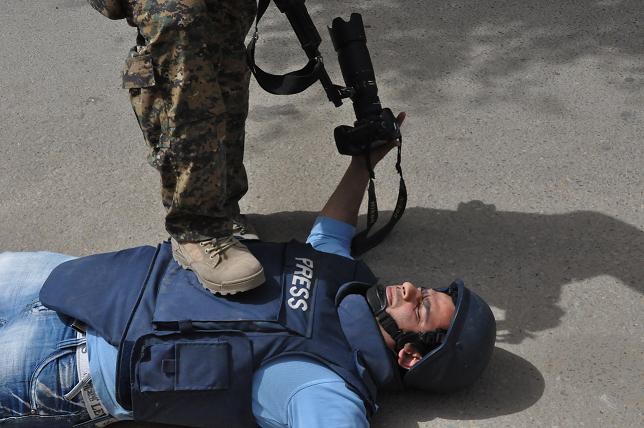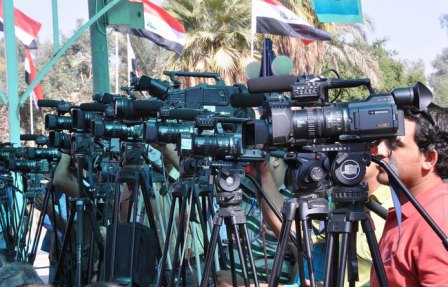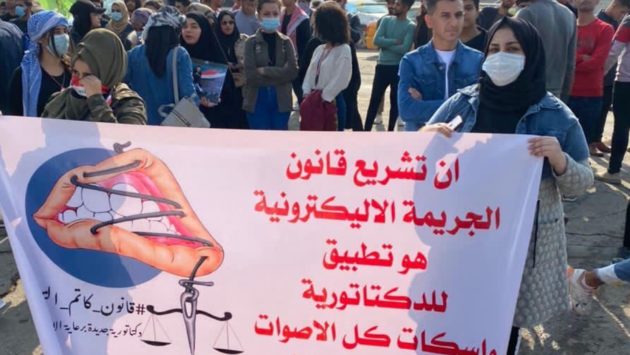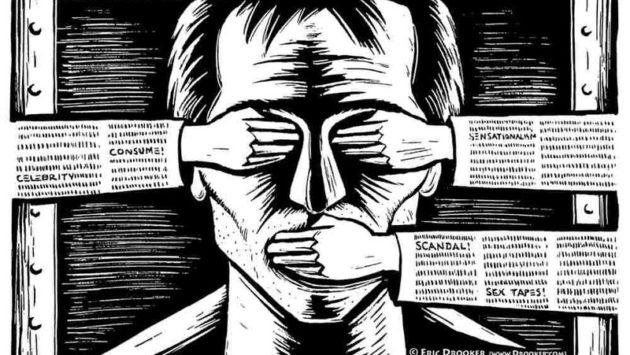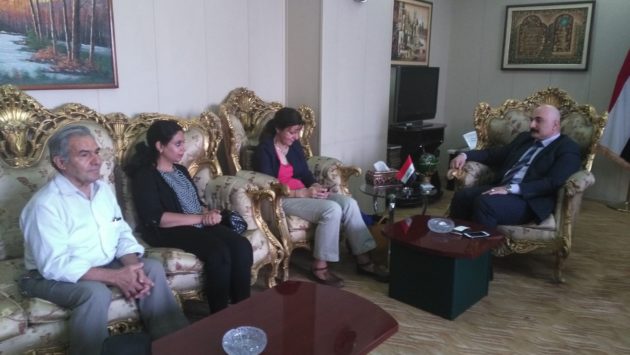Journalists in Iraq risk their lives and “Journalists Rights Law” needs amendments
On the occasion of the World Press Freedom Day, the head of the UN mission in Iraq Martin Kobler reported in a statement that the year 2012 witnessed the killing of five Iraqi journalists and recorded (50) cases of violence against media in Iraq, pointing out that “Journalists in this country risk their lives to do their jobs and this is unacceptable, freedom of expression and democracy belong together, one cannot exist without the other. Iraq cannot afford to take steps backward”, said Mr. Kobler. The UN mission calls for renewing the commitment of press freedom in Iraq and to work to stop the violence and intimidation against the press.
Kobler indicated that Iraq needs a strong and free press to assure the right to speak out, and to learn the truth, emphasizing that the press and media organs must adhere to professional ethics. Kobler verified in his statement that freedom of expression is an essential element of human rights, and Iraq needs a strong and free press to ensure the right to express its opinion and to identify the facts.
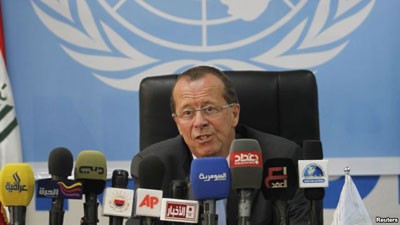
From her part, the Director of the United Nations Education, Scientific and Cultural Organization (UNESCO) Office in Iraq, Ms. Louise Haxthause shared her concerns indicating that the country should provide a safe environment for journalists and the press must be allowed to operate without threat of violence, harassment, intimidation, or arbitrary arrest. UNESCO Director also urged Iraqi journalists, decision makers, media institutions, and civil society organizations to work together to “create an environment that allows the development of a professional, independent, and responsible media sector”.
The United Nations Secretary-General, Ban Ki-moon and UNESCO revealed on Thursday (May 2, 2013), that more than 600 journalists have been killed in the world during the past ten years, in “non-combat conditions”, and stressed that out of every ten cases of journalists’ murder, nine of them “escape” from punishment, while pointing out that many journalists are subjected to punishment “without legal basis”, calling for gritty standing against the general lack of security and justice.
In the meantime the Iraqi Press Freedom Advocacy Association conducted a study based on a opinion survey of about 250 journalists on the “Journalists Rights Law”. The study demonstrated that the vast majority of journalists and media professionals look in negative perception to the so-called “Journalists Rights Law No. 21 of the year 2011″ and wished that it be reformed that a new law is passed as soon as possible. The survey was conducted by a research team headed by the legal expert Professor Zuhair Ziauddin, which showed that more than 85 percent of the survey respondents pointed to the need of a new law legislation that enhances the freedom of the press and the freedom of expression and do not suppress it. In addition about 84 percent saw that the “Journalists Rights Law” does not offer them any support or legal protection. The study also showed that 41 percent of the survey respondents did not read the law, reflecting the lack of confidence of a large proportion of journalists with legislation.
For the conviction of those journalists in that the law brings them some kind of rights and freedoms, the percentage of the positive responses were very low, ranging between (20.4% – 26.8%) only, while the rates of negative responses ranged between (62% -75.2 %), which points to the failure of the “Journalists Rights Law” in securing the minimum of journalists’ rights and freedoms and protecting their work and profession.
The sample size surveyed were about 250 journalists which represents (4%) of the approximate total number of the actual working reporters, numbering between 5-6 thousands journalist. This gives a good indication and an accurate measure of journalists’ opinion of the law. The negative results of the study emphasize the urgent need to reconsider this law and amend it at the very least to meet the aspirations of journalists and bring them the guarantee of freedom of work and freedom of expression and the right of access to information as well as to achieve the real functional guarantees.
On Sunday (April 28, 2013), the other hand, the Iraqi Communications and Media Commission announced, the suspension of work permits of eight TV stations for adopting “a sectarian speech” that accompanied the incidents of Hawijah, and confirmed that those channels worked on “tearing” the Iraqi social fabric through the incitement to violence and religious hatred and calling for civil disturbance through the escalation of sectarian language as well to call for retaliatory criminal activities. The commission stressed the need to recognize that freedom of expression “is not an absolute right”. The suspension decision included specifically (Baghdad, Al-Sharqia, Al-Sharqia News, Al-Babilya, Salah Al-Din, Al-Anwar2, Al-Taghyeer, Al-Fallujah) TV Stations, indicating that “it was clear that those TV stations adopted an irritation way closer to misleading and exaggeration than objectivity”.
On Saturday (27 April 2013), Prime Minister Noori al-Maliki accused TV channels which were geared for scientists with “sectarian poisons broadcasting” in the country, while the International Islamic Conference called for dialogue to issue instructions to fight this “scourge”.
Later, Human Rights Watch called upon the Iraqi Communications and Media Commission to retreat immediately its decision, and allow the TV stations to continue their work, indicating that “the decision to withdraw the licenses targeted specifically opposition channels, while left channels such as Al-Iraqiya to broadcast freely”. Meanwhile, on Friday, the [media] commission considered the remarks of Human Rights Watch as “an attempt to throw dust in eyes and to abuse the work of the commission which is independent in its decisions”, while confirming that “the organization and it’s representative depended in presenting arguments and evidence on pre-prepared politicized impressions and visions”.

